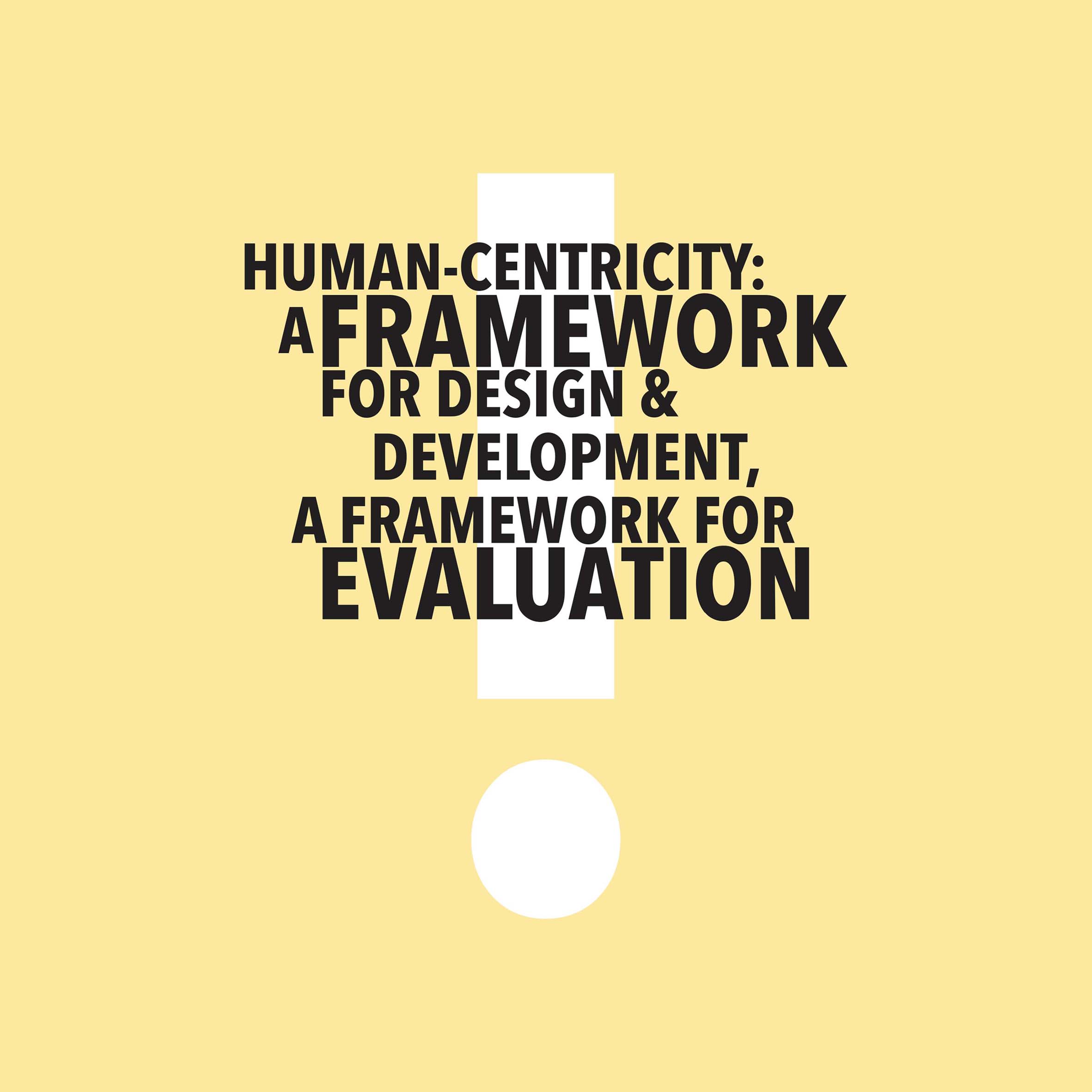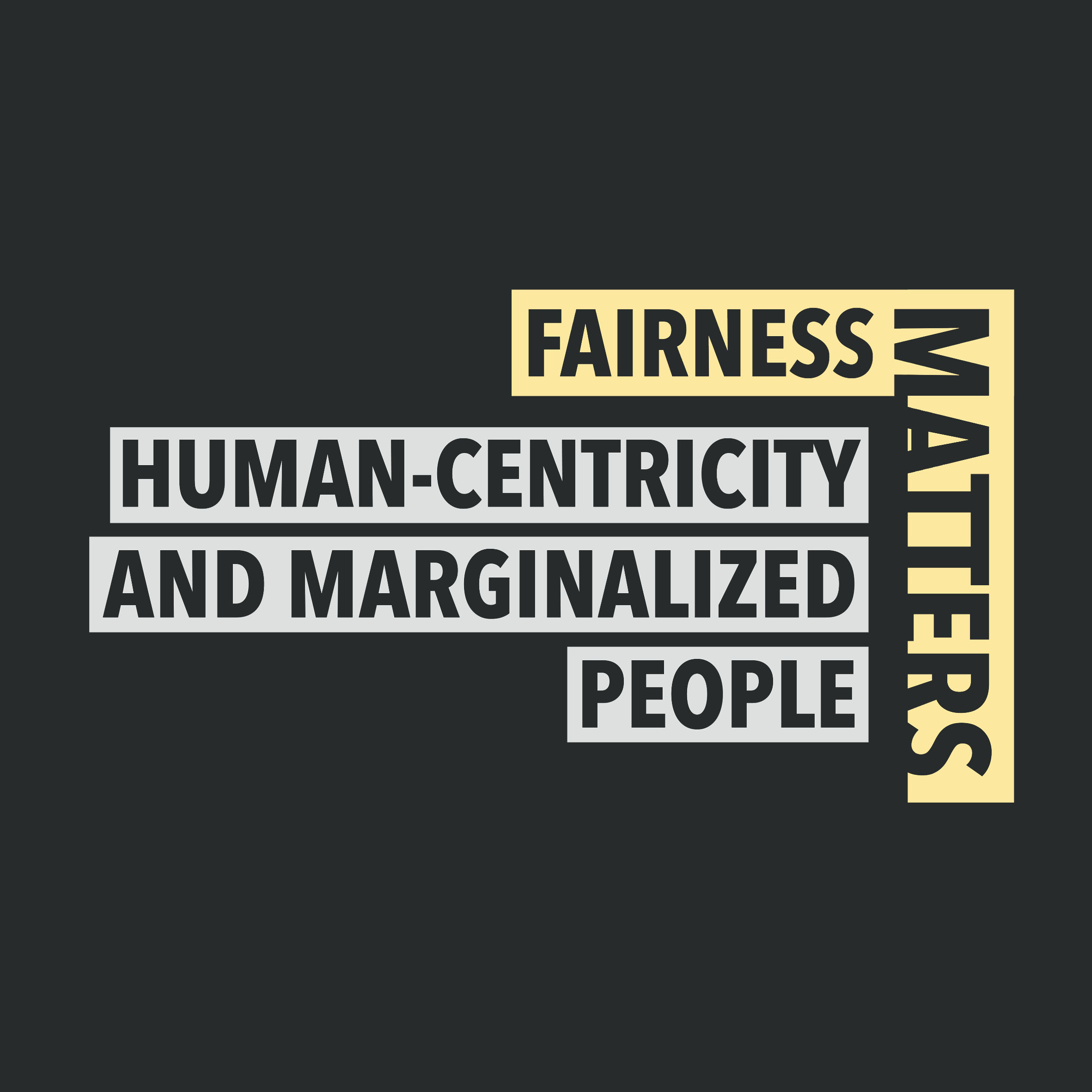

Click edit button to change this text. Lorem ipsum dolor sit amet, consectetur adipiscing elit. Ut elit tellus, luctus nec ullamcorper mattis, pulvinar dapibus leo.
Click edit button to change this text. Lorem ipsum dolor sit amet, consectetur adipiscing elit. Ut elit tellus, luctus nec ullamcorper mattis, pulvinar dapibus leo.
Click edit button to change this text. Lorem ipsum dolor sit amet, consectetur adipiscing elit. Ut elit tellus, luctus nec ullamcorper mattis, pulvinar dapibus leo.
Fairness, Why Human-Centricity Matters?, Marginalized People
HUMAN-CENTRICITY:
A Framework for Design & Development,
A Framework for Evaluation!Like any other concept, many different notions of human-centricity have been suggested. We propose that the following understanding can provide a very useful framework for the evaluation of existing and for development of future evaluation systems:In a human-centric approach, individual (cognitive) and social (collective and contextual) dimensions of every single end-user and all end-users combined are taken into account when an information system—e.g. a consent-obtaining mechanism—is designed, implemented, evaluated, and released.[An image on enactivism]Considering that humans are cognitive systems enacting in their socio-contextual environments provides a framework to empower them based on their sociocognitive needs, values, capabilities and limits.Using a human-centric perspective will not only support designers and developers to include sociocognitive aspects of consenting agents (i.e. end-users) in the development of a new consent-obtaining mechanism. It can also provide a framework to evaluate the existing mechanisms’ design to obtain consent on the Internet.
Fairness, Why Human-Centricity Matters?, Marginalized People